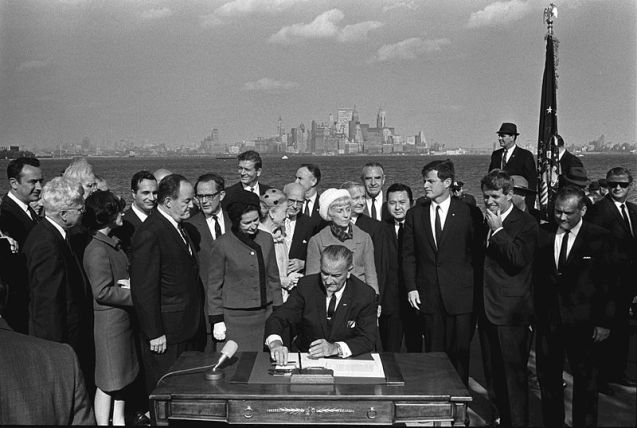Born that way? ‘Scientific’ racism is creeping back into our thinking. Here’s what to watch out for.
The Washington Post
2015-09-28
W. Carson Byrd, Assistant Professor of Pan-African Studies
University of Louisville, Louisville, Kentucky
Matthew W. Hughey, Professor of Sociology
University of Connecticut
This month, Jennifer Cramblett lost her “wrongful birth” lawsuit, which centered on a troubling ideology that has been creeping into mainstream discussions in ways not seen in decades. Cramblett claimed that the sperm used to inseminate her came from the wrong donor, leading to a biracial child, which she had not wanted. Her lawsuit claimed that this mix-up in the lab caused her and her family personal injuries of various kinds.
This lawsuit was shadowed by a troubling logic: the idea that race is a biological reality with particular traits and behaviors that can be avoided through proper breeding practices. In doing so, Cramblett’s claims echoed arguments made in a darker era of global history of “scientific” racism.
Here’s how the argument goes. Some people are born with outstanding talents, easily mastering basketball, mathematics, languages or piano, if given the right environment in which to grow. What biologist or social scientist could argue with that? But alongside that genetic understanding, an old and pernicious assumption has crept back into the American conversation, in which aptitudes are supposedly inherited by race: certain peoples are thought to have rhythm, or intellect, or speed or charm. That’s a fast track toward the old 19th- and early 20th-century problem of “scientific” racism…
…Sociological data suggest that the social behavior of both slaves and slaveholders better explains mortality rates than do physiological qualities of health, speed or strength. In particular, groups of rebellious young men were were most likely to die than those who passively acquiesced, while the economically well-off slaveholders were more likely to kill slaves than those who could not afford to lose property. In sum, the social forces of organized rebellion and the political economy of slavery are better explanations for mortality rates than abstract appeals to “genes” or “natural selection.”
Hughey’s and Goss’s work finds that such explanations have actually proliferated in an era that many argue is “colorblind” or “post-racial,” from MSNBC’s Chris Matthews who proudly said that he forgot, for a moment, that Obama was black, to a 2011 New York Times article that referred to interracial marriage as “a step toward transcending race,” to the claim that “all”— not “black” — lives matter, as presidential candidate Rand Paul recently insisted…
Read the entire article here.

